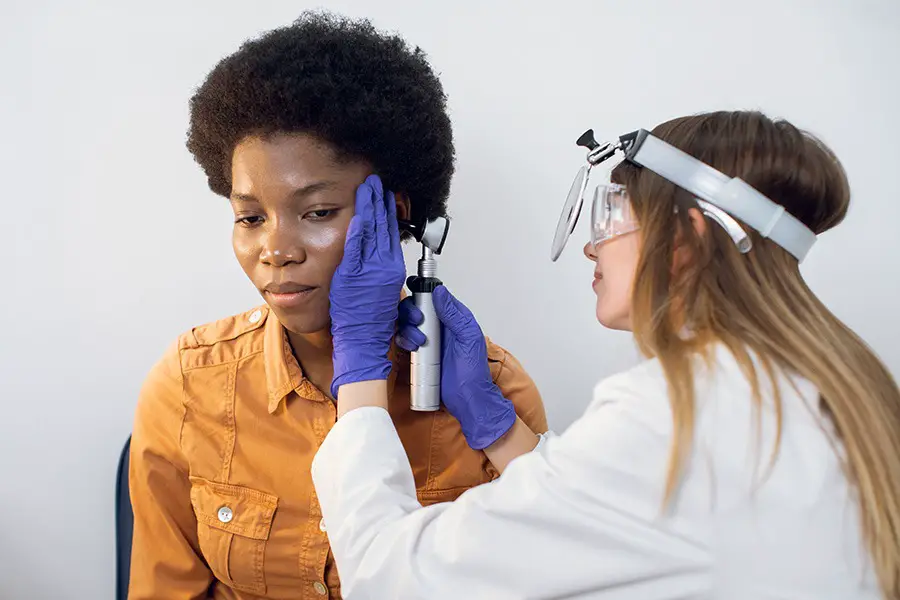Understanding Sensorineural Hearing Loss: A Societal Perspective
In a world often dominated by sight and sound, those affected by sensorineural hearing loss – SHL – face a unique set of challenges. They navigate not only the physical implications but also the psychological and social dimensions of their condition. Especially for seniors, this presents a multifaceted scenario that warrants a closer look. This blog post delves into the societal dynamics surrounding sensorineural hearing loss, examining facets such as social inclusion, impact on adolescents, accessibility, stigma, and the legal landscape for the affected individuals.
Our endeavor is to comprehend the intricate relationship between society and SHL, a quest that can illuminate pathways towards more inclusive societal structures and improved individual experiences. So, let’s unravel the societal intricacies related to SHL, and better understand its wider resonance.
Inclusive Society: Empowering Individuals with Sensorineural Hearing Loss
The quest for an inclusive society demands more than simple recognition of SHL. It requires a deep understanding of the unique challenges faced by affected individuals, especially seniors, and taking proactive measures to ensure their full and equal participation in societal activities.
Consider, for instance, the senior centers equipped with assistive listening systems and staff trained in sign language. These seemingly small adaptations create a welcoming environment for seniors dealing with sensorineural hearing loss, fostering inclusion and enhancing their life quality.
Teens & Sensorineural Hearing Loss: Acknowledging the Social Impact
The teenage years, a time of exploration and identity formation, can be particularly challenging for those dealing with sensorineural hearing loss. Social isolation can become a considerable burden, requiring us to pay attention to the social implications of the condition on this age group.
Reflect on Lucy’s story, a high school student with SHL. Her school responded to her social and educational challenges by introducing inclusive education practices, such as assistive technology and captioning services. Lucy’s journey underscores the necessity of understanding and responding to the unique challenges faced by adolescents with sensorineural hearing loss.
Making Spaces Accessible for Those with SHL
In the realm of SHL, accessibility transcends the physical. It includes creating sensory-friendly environments, integrating assistive technologies, and fostering communication systems that cater to all.
Take the example of Austin’s city library, which has adopted innovative measures like induction loop systems and staff trained in sign language. They’ve also introduced quiet zones and made captioned and audio-described resources widely available, setting an example for creating accessible public spaces for those with sensorineural hearing loss.
Countering Stigma: A Step Forward in Sensorineural Hearing Loss Acceptance
Stigma can create significant barriers to inclusion for individuals with sensorineural hearing loss. Tackling this requires dismantling misconceptions and fostering an understanding and accepting society.
George, a senior with sensorineural hearing loss, confronted stigma when he began using a hearing aid. By raising awareness and sharing his experiences, he has played a crucial role in challenging misconceptions and tackling the stigma associated with sensorineural hearing loss.
Legal Rights & Equality: Upholding Justice for Those with Sensorineural Hearing Loss
Understanding the legal rights of those with sensorineural hearing loss is paramount in achieving equality and eradicating discrimination. Legislation such as the Americans with Disabilities Act (ADA) offers protections and mandates reasonable accommodations in public spaces and workplaces.
Mary, a senior with SHL, highlights the importance of these legal rights. After facing difficulties in her local community center, Mary advocated for her rights under the ADA, resulting in the installation of assistive listening devices and an inclusive, accessible environment.
Surgical Advancements: A Beacon of Hope for Sensorineural Hearing Loss
Traditional treatment approaches like hearing aids and cochlear implants have been vital tools in managing sensorineural hearing loss. However, surgical advancements now offer promising new options to tackle the condition at its roots.
Consider Linda, a senior living with SHL. She underwent a pioneering surgical procedure involving a device implanted in her cochlea to stimulate the auditory nerve directly. Post-surgery, Linda experienced significant improvement in her hearing capabilities, attesting to the promise of advanced surgical treatments.
Conclusion
While SHL is primarily a health issue, it carries far-reaching societal implications. The condition’s influence is deeply embedded within the fabric of societal structures and personal experiences, underscoring the need for a comprehensive approach to address it.
Promoting inclusion, creating accessible spaces, and understanding the unique challenges of specific demographics, such as teens, are integral to building a society that embraces every member, regardless of their hearing capabilities. Addressing stigma and safeguarding legal rights play a significant role in eliminating barriers and providing equal opportunities for those with sensorineural hearing loss.
Through this analytical lens, we observe the complex interplay between society and sensorineural hearing loss, informing strategies to shape an inclusive society. As we move forward, we must carry these insights and use them as guiding principles in our endeavors to create a society that reverberates with inclusivity, empathy, and respect for everyone, including those living with SHL.

Decoding Silence: An Analytical View on the Advances in Conductive Hearing Loss Research and Treatment
This analytical article sheds light on conductive hearing loss, offering an in-depth exploration of its genetic factors, treatment advances, and promising experimental therapies.

Embracing the Melody of Life: Navigating the Journey with Conductive Hearing Loss
A blog post delving into the experiences and challenges of living with conductive hearing loss, discussing its impact on everyday life, social interactions, mental health, and the potential benefits of hearing aids and cochlear implants.





